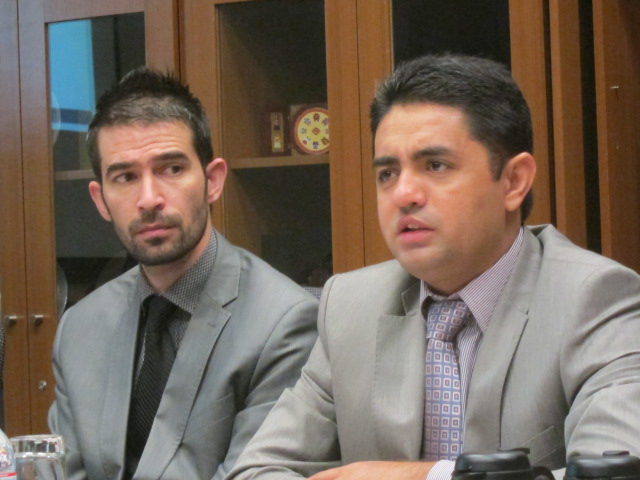
The international news on Afghanistan often give us a picture that the country is hopeless—poor, unsafe and disadvantaged without security and with an unknown future. However, in reality it may not be so. At least 16 officials from the Ministry of Finance (MoF) of Islamic Republic of Afghanistan who attended a five-day executive programme at the LKY School told us a different story—one of a hopeful nation. They say while Afghanis might have gotten used to the explosions that could take their neighbour’s or relative’s lives in a second, theyeremain passionate and optimistic about Afghanistan’s future.
The 16 officials from MoF arrived at Changi airport on 26 August in high spirits with the goal to promote their resource-rich country that welcomes foreign investment to develop their economy. This batch of young officials, who manage the government’s finance, budgets and funds, spoke fluent English, and most of them have degrees from overseas universities.
The head of the delegation Zia-Ur-Rahman Haleemi Abdul Halim Bursat, Director of Budget Policy and Reform Unit of MOF said: “We chose to be trained at the LKY School not just to learn from Singapore’s strategic development practices but also from the region. We are aware that countries in South East Asia or Asia have experienced economic transition and development stages that Afghanistan is going through currently. There are many lessons for us to learn from this region. We specifically chose the LKY School as it has an Asian taste that cannot be found elsewhere. Although after attending this type of short programme, we will not be able to transform our country right away, we do learn ways and new methods of managing budgeting and efficient planning that we expect will offer effective outcomes in the long term. Lectures with both practical and theoretical components on Fiscal Policy and Budgeting, Tax Policy and Administration, Financial Reform for a Transition Economy and Controlling Corruption and site visits to the Ministry of Finance and Corrupt Practices Investigation Bureau (CPIB) during the programme were especially useful for us to learn from the experiences of other countries such as Vietnam, Taiwan, Singapore and Malaysia. Using our new knowledge from this week’s lectures we will be able to more efficiently manage the legislative changes currently taking place, create a more investment and business-friendly environment, and design more effective public policies.”
He also stated that the Government of Afghanistan places a great importance on education and this includes granting scholarships for overseas training. “Seeing is better than hearing,” said Zia, and is one of the reasons for exposing officials to the advanced development of Singapore. Since 2011, the government has spent US$10 million on scholarships and each year about 1,500 undergraduate and graduate level students are sent to universities in the USA, UK, Europe, Russia and Central Asia.
I asked Zia what wish he had for his country, if he had but one. He replied, “Stability. As soon as there is security and peace then the economy, political system and the society will stabilise and the government will be able to focus on socio-economic development rather than providing basic security for our people. We do have resources available and policies in place to prosper in the long-term and people are optimistic about the changes currently taking place in the country.”
Naveed Ahmad Niaz Lal Mohammad, Budget Reform Manager, also shared these views and hopes:
“I am one of the optimistic men in my country, who will take back many useful lessons after analyzing advantages and disadvantages the countries in this region had in their development path. One policy our government is implementing intensively is developing competitive human resources, which is a crucial factor in development. Currently, our government lacks skills needed in implementing the changes and is challenged by the private sector in keeping the talents due to uncompetitive salary levels. Therefore the government is training public sector officials by sending them to programmes and study tours overseas. Depending on the sector, government chooses different destinations such as Turkey, South Africa, India or Malaysia. Singapore is one of the destinations where we can learn about budgeting and fiscal planning and anti-corruption measures. This programme also provides an opportunity for us to network and maybe involve the LKY School’s lecturers and practitioners as advisors to our government to help us reform our system and transform the country.”
Naveed told me about his wish that through education and training, he hopes to be part of Afghanistan’s transformation to a peaceful and prosperous country. “Hope” was heard often during the week. Professor Eduardo Araral, Faculty Lead of the programme, was also struck to hear the word “hope” during every presentation by the participants at the end of the week and they concluded that there is always hope in everything to be done in Afghanistan